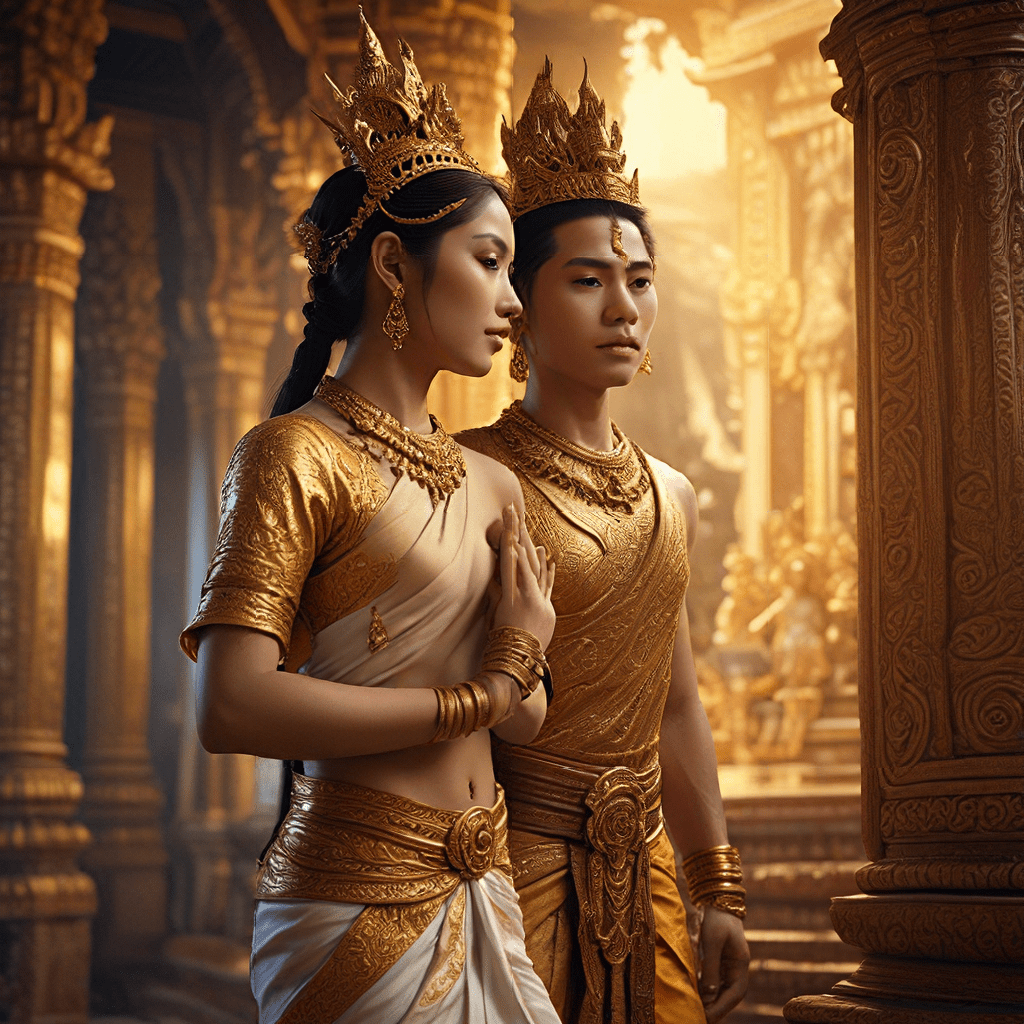Moral Myths and the Nature of Honor: Lessons from Legends
I. Introduction
Moral myths are narratives that embody the ethical standards and values of a culture, often illustrating the complexities of human behavior in the face of moral dilemmas. They serve as guiding principles, helping societies navigate the gray areas of right and wrong. The significance of moral myths lies in their ability to shape the identity of a community, influencing both individual actions and collective norms.
One of the central themes explored within these myths is the concept of honor. Honor, though universally recognized, varies greatly across different cultures, reflecting the unique values and historical contexts of each society. This article aims to delve into the lessons imparted by legendary tales, examining how these narratives inform our understanding of honor and morality.
II. Understanding Moral Myths
A. Definition and characteristics of moral myths
Moral myths can be defined as traditional stories that convey moral lessons, often featuring archetypal heroes and villains. They possess several key characteristics:
- Symbolism: They often utilize symbolic characters and events to convey deeper meanings.
- Didactic nature: These stories are designed to teach moral lessons or values.
- Cultural significance: They reflect the beliefs and values of the society from which they originate.
B. The role of moral myths in shaping societal values
Moral myths play a crucial role in the formation of societal values. They help to establish norms around behavior, guiding individuals on how to act in various situations. By presenting consequences for actions through narrative, they encourage individuals to adhere to ethical standards.
C. Examples of prominent moral myths in various cultures
Numerous cultures have their own moral myths, such as:
- The Epic of Gilgamesh: A tale of friendship, mortality, and the quest for wisdom.
- The Mahabharata: An Indian epic exploring duty, righteousness, and the moral complexities of war.
- Aesop’s Fables: Short stories that impart moral lessons, often featuring animals as characters.
III. The Concept of Honor Across Cultures
A. Historical perspectives on honor in different civilizations
Honor has been a vital aspect of many civilizations throughout history. In ancient Rome, for example, personal honor was linked to reputation and social standing, while in medieval Japan, the samurai code of bushido emphasized honor as a virtue tied to loyalty and bravery.
B. Variations in the perception of honor: Eastern vs. Western views
Eastern cultures often emphasize collective honor, where an individual’s actions reflect on their family or community. In contrast, Western cultures may focus more on personal honor and individual achievements. These differing perspectives lead to varied interpretations of what it means to act honorably.
C. The relationship between honor, reputation, and morality
Honor is intricately linked to reputation; a person’s honor can be seen as a reflection of their moral character and societal standing. Actions taken to protect or restore honor often stem from deeply held moral beliefs, making honor both a personal and social construct.
IV. Legendary Figures and Their Moral Lessons
A. Overview of legendary figures known for their honor
Many legendary figures exemplify the concept of honor. Notable examples include:
- King Arthur: Symbolizes nobility, justice, and the ideal of the chivalric code.
- Achilles: Represents the conflict between personal honor and communal responsibility.
- Socrates: Embodies the pursuit of truth and integrity, regardless of societal pressures.
B. Analysis of their stories and the moral lessons they impart
The stories of these figures serve as cautionary tales and aspirational narratives. For example, King Arthur’s commitment to his knights and kingdom showcases the importance of loyalty and justice. In contrast, Achilles’ wrath and eventual downfall illustrate the dangers of pride and vengeance.
C. The impact of these figures on contemporary understandings of honor
These legendary figures continue to influence modern interpretations of honor, providing frameworks for understanding ethical behavior and personal integrity in contemporary society.
V. The Dichotomy of Honor: Virtue vs. Vice
A. Exploring the dual nature of honor in moral myths
Honor embodies a dual nature, capable of inspiring noble actions as well as leading to tragic outcomes. This dichotomy often manifests in moral myths, where characters face dilemmas that test their honor.
B. Case studies: Honor-bound actions leading to both noble and tragic outcomes
Consider the following examples:
- Noble Outcome: A knight defending the weak in battle, exemplifying honor and bravery.
- Tragic Outcome: A father avenging a dishonor by committing violence, leading to a cycle of revenge.
C. Discussion on how honor can be misused or misunderstood
Honor can sometimes become a justification for harmful actions. Misinterpretations of honor can lead to toxic behaviors, such as honor killings or excessive pride, demonstrating the need for a nuanced understanding of this complex concept.
VI. Contemporary Relevance of Honor Myths
A. How ancient tales influence modern moral dilemmas
Ancient moral myths continue to resonate in today’s society, providing insights into contemporary ethical dilemmas. The lessons from these stories often serve as reference points in discussions around justice, loyalty, and integrity.
B. The resurgence of honor in current social and political contexts
In recent times, the concept of honor has seen a resurgence in various social and political movements, emphasizing integrity, accountability, and the importance of standing up for one’s beliefs.
C. Lessons from legends applicable to today’s ethical challenges
The lessons drawn from legendary tales are invaluable as they encourage individuals and societies to reflect on their values and the implications of their actions in pursuit of honor.
VII. Honor in Literature and Art
A. The portrayal of honor in classic and contemporary literature
Literature has long been a medium for exploring the concept of honor. Classic works, such as Shakespeare’s “Hamlet,” delve into themes of honor and revenge, while contemporary novels often critique traditional notions of honor in modern society.
B. Artistic representations of honor-related themes in visual arts
The visual arts have also captured the essence of honor, from classical sculptures depicting heroic figures to modern artworks that challenge conventional views on honor and morality.
C. How these representations shape public understanding of honor
Artistic representations contribute significantly to shaping public perceptions of honor, influencing societal attitudes and behaviors through their portrayal of honor-related themes.
VIII. The Psychological and Sociological Aspects of Honor
A. The psychological motivations behind the pursuit of honor
Individuals often pursue honor due to intrinsic motivations, such as the desire for respect, recognition, and belonging. The psychological need for validation can drive behaviors aimed at achieving or preserving honor.
B. Honor and its effects on group dynamics and social cohesion
Honor can strengthen group dynamics, fostering a sense of unity and shared values. Conversely, differing interpretations of honor can lead to conflict within groups, highlighting the complexity of this concept in social interactions.
C. The consequences of honor-related conflicts in society
Honor-related conflicts can have serious societal consequences, leading to violence, discrimination, or social fragmentation. Understanding these dynamics is crucial for addressing and mitigating such issues.
IX. Critiques and Controversies Surrounding Honor
A. The problematic aspects of honor cultures
While honor can inspire noble actions, it can also perpetuate harmful practices, such as honor killings and toxic masculinity. These problematic aspects highlight the need for critical engagement with honor cultures to prevent abuse.
B. Critical perspectives on the glorification of honor in moral myths
Some scholars argue that the glorification of honor in moral myths can reinforce harmful stereotypes and justify violent behaviors. Re-evaluating these narratives is essential for a more balanced understanding of honor.
C. Re-evaluating the concept of




